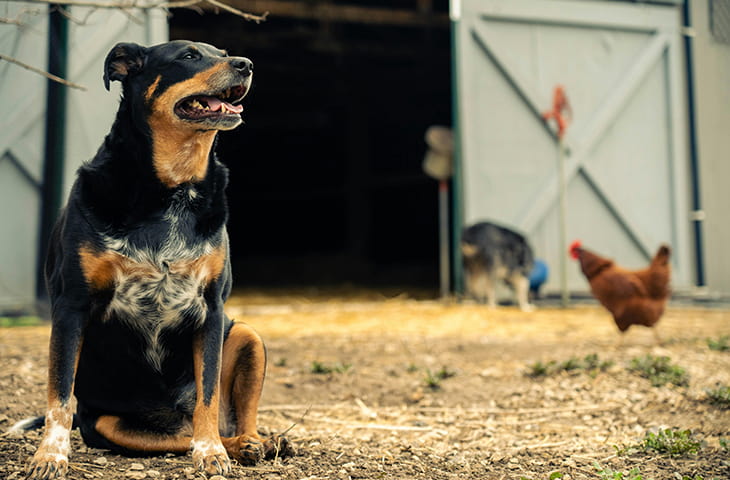Before You Adopt A Pet, Make Sure You Can Say Yes To These Nine Things

01.01 BW Nonlead
https://www.barkandwhiskers.com/2016-02-20-nl-pet-adoption/
https://www.barkandwhiskers.com/p/5e8a8902-117c-4f47-a975-cc6326419c2e/
By Dr. Becker
Adopting a pet is one of the most significant commitments you will make in your lifetime. Accepting the responsibility of caring for another life — a creature that will be totally dependent on you — isn’t something to take lightly.
Unfortunately, too many pets are acquired on a whim, without thought or preparation. A person’s heart may be in the right place, but unless he or she is prepared to invest the time, effort and money necessary to properly care for the pet for its lifetime, things can quickly sour.
In those cases, and there are far too many of them, the animal is the inevitable loser. Shelters are full of pets that were the result of an impulse purchase or adoption.
According to a recent report by the American Society for the Prevention of Cruelty to Animals (ASPCA) titled “Goodbye to a Good Friend: An Exploration of the Re-Homing of Cats and Dogs in the U.S.,” over a million households in the U.S. re-home a cat or dog every year.1
I can’t emphasize enough the need to carefully evaluate your readiness and ability to care for a pet, and encourage you to ask yourself the following important questions before making a decision to bring home a new family member.
9 Questions to Ask Yourself Before You Adopt a Pet
- Do you have the time to devote to a pet?
Even relatively low-maintenance pets require attention from their humans, so if your life is already very busy or you’re not home much, a pet may not be the best idea.
Many animals, especially dogs, exotic birds, and yes, even cats require lots of daily interaction with their humans. Pocket pets and other animals that live in cages or other enclosures need supervised time outside their habitats each day.
Without social interaction and stimulation, pets tend to develop behavior and emotional problems.
Do you have the energy to dedicate to a pet?In addition to spending time with you, your pet also deserves to be exercised, played with, trained, groomed, and cuddled. If you come home at night exhausted, you should think seriously about whether you have the energy reserves you’ll need to offer a pet a good quality of life.
Can you afford a pet?Caring properly for a pet can put a dent in your budget. You should think realistically about whether you can afford the cost of a high-quality diet, toys, other supplies, obedience training, wellness visits to the veterinarian, etc.
In addition, your pet could get sick or injured, and you should have a plan in mind for how you’ll pay those vet bills in the event something serious happens to your animal companion.
Is everyone in the household sold on the idea of a pet?It’s ideal if everyone in the family or household is onboard with getting a pet. Otherwise, resentments can build and relationships can suffer.
It’s a good idea to involve all members of the household in the decision-making process, openly discuss concerns, and determine who will have primary responsibility for the pet’s care.
Does your prospective new pet come with emotional or behavioral “baggage” you can accept or commit to dealing with?Behavior issues are the number one reason pets are dumped at shelters. Most of these animals didn’t have the best start in life.
For example, they weren’t socialized at the ideal age, were over-vaccinated, or endured traumatic events that created behavioral quirks you will need to be prepared to deal with.
Many pets didn’t have optimal, safe exposure, or experiences with a variety of people, animals, circumstances and events that allowed them to develop the social, emotional and mental coping skills necessary to react, respond and cope with real life issues healthfully.
This means they may arrive in your home with some bad habits that will need to be addressed.
Combine a lack of healthy socialization with the potential for negative, fear-based training or a neglectful/abusive first few months, and you have the recipe for a lifetime of dysfunctional behaviors and responses to everyday life in the animal you just adopted.
Are you committed to a lifetime of “damage control” when it comes to positively addressing negative behaviors and phobias that your newly adopted furry companion may arrive with?
And can you trust everyone in your household to participate in positive training to correct behavior issues?
Will your existing pet (if you have one) accept a new pet?You definitely need to plan ahead if you already have a pet and want to add another to the household.
Most animals can learn to get along or at least tolerate each other, but there are situations in which it’s just too dangerous or stressful to keep two poorly matched pets under the same roof.
If possible, introduce your existing pet to your potential adoptee in a neutral setting and see how they interact. If it doesn’t go well, I encourage you to consult with an animal behavior specialist before throwing in the towel on adopting a second pet.
Often it just takes some time and a few helpful tips to put an existing pet and a new one on the road to a harmonious relationship.
Are you prepared to prioritize your pet over your belongings?Pet ownership means there will be the inevitable accidents and other messes in the house, furballs on your furniture and bedding, and the random destroyed slipper or other personal belonging.
If you can’t tolerate the thought of a less than perfectly clean house, you might want to reconsider the idea of pet ownership. Even the most well-behaved, well-trained animal companion makes the occasional mess or forgets his manners.
What kind of relationship do you want with your pet?It’s important to think about how you’d like your new pet to fit into your lifestyle. For example, if you do a lot of traveling and want to take your pet along, a small dog is probably a better choice than a large breed or a cat.
If you plan to take your pet jogging with you, some dogs are better suited to long runs than others.
It’s also important to think about what you can offer a potential pet. If, for instance, you’re the outdoorsy type who enjoys hiking and camping, those activities have tremendous appeal to certain dog breeds, such as retrievers and retriever mixes.
Ideally, you do plan to include your pet in many of your leisure time pursuits, so it’s important to give the subject some careful thought.
What changes do you expect in your life in the next 5, 10, or 15 years?While we can’t predict the future, most of us have a vision for our lives that extends years down the road.
Regardless of the type of pet you’re considering, you’ll be taking on a multi-year commitment. It’s important to be reasonably sure your lifestyle will be as pet-friendly in 5, 10, or 20 years as it is today.


